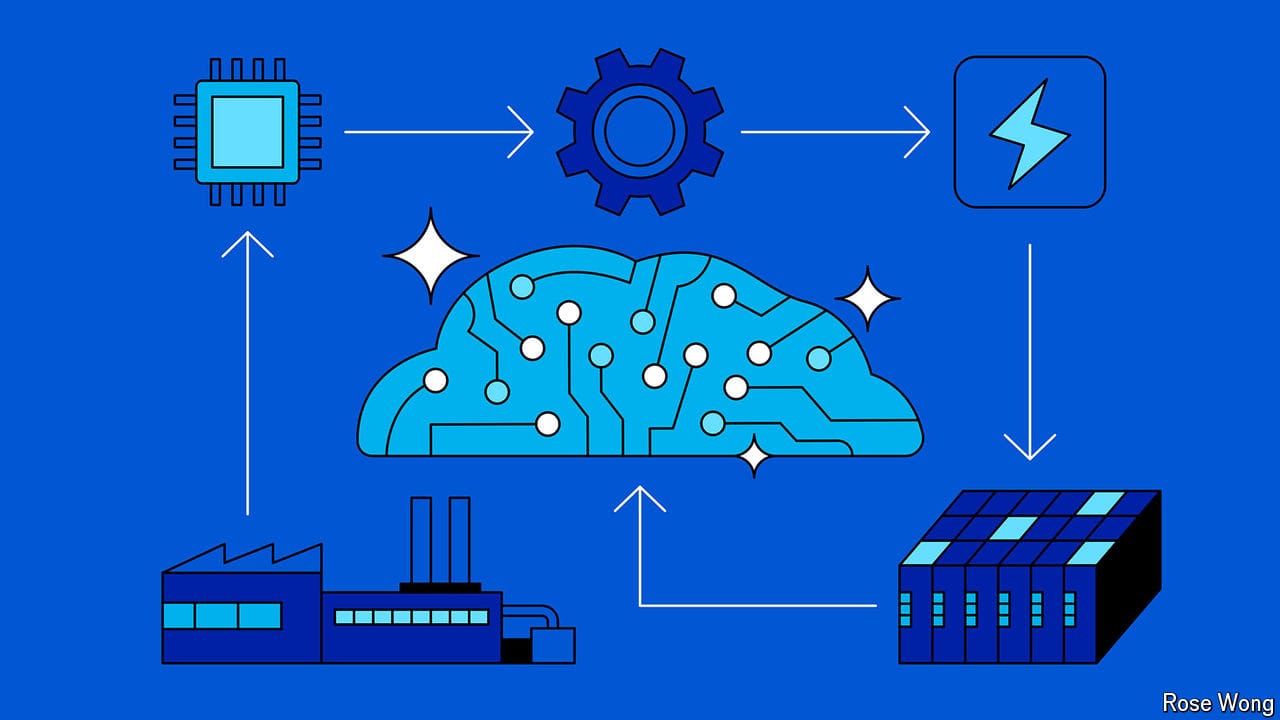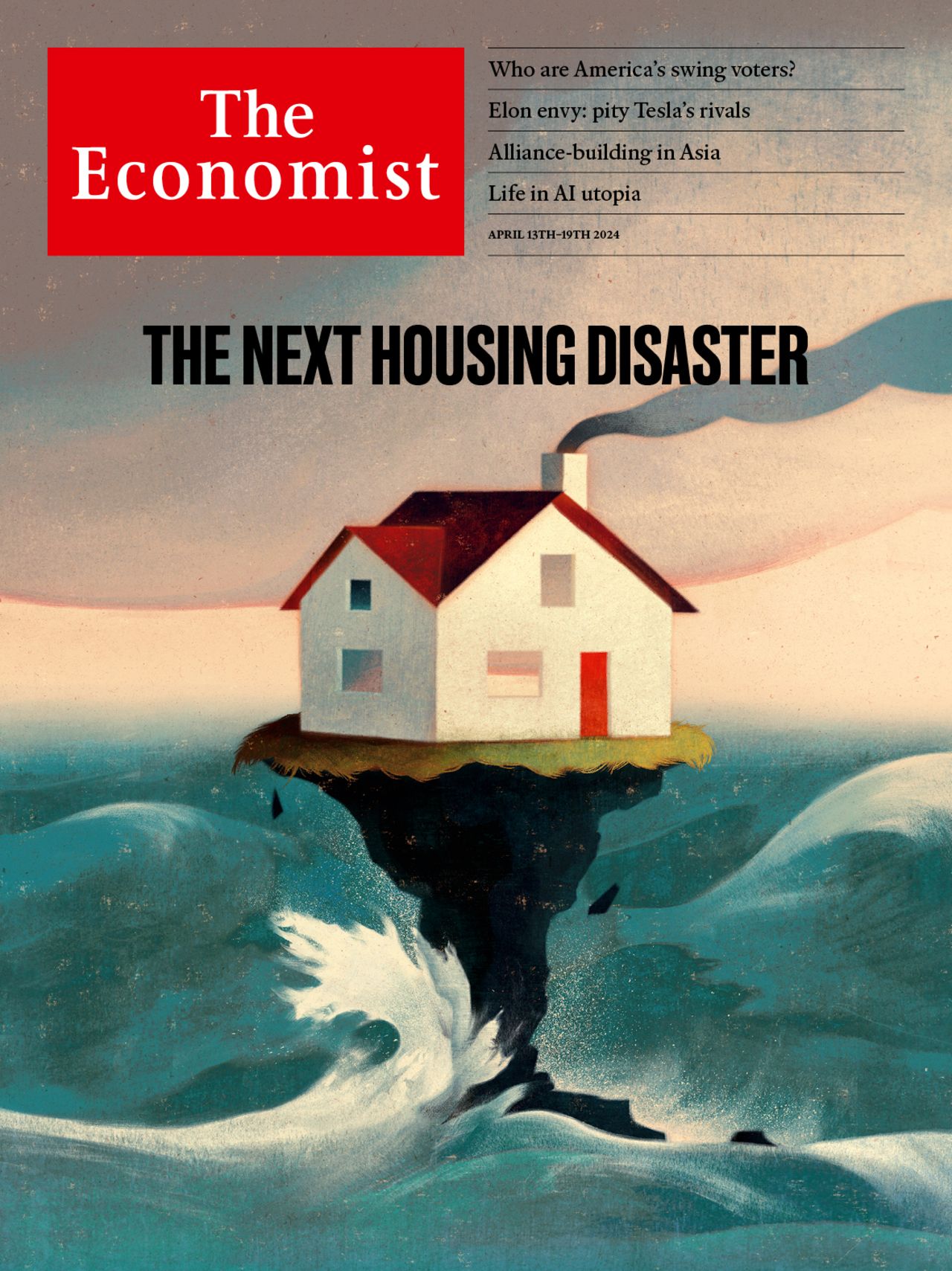Generative AI has a clean-energy problem
What happens when the AI revolution meets the energy transition

When a colleague from this newspaper visited Sam Altman in 2022 at his home in San Francisco, he noticed two pairs of pink high-tops on a bookshelf. One had the logo of Mr Altman’s machine-learning startup, OpenAI. The other bore an emblem for Helion, a nuclear-fusion company that Mr Altman also backs. The entrepreneur is obsessed with both technologies—not just as foot fashion. He believes that the cost of intelligence and the cost of energy will fall in a mutually sustainable way. He calls it a “long and beautiful exponential curve”.
Nasty, brutish and short, more like. Talk to utilities and data-centre operators and, though many share Mr Altman’s excitement about artificial intelligence (AI), they are grappling with an energy conundrum on which the future of three big economic shifts partly hinges: the AI revolution; the efforts to electrify swathes of the economy; and the fight against climate change. In a nutshell, “generative” AI, the sort behind OpenAI’s ChatGPT, has a ravenous appetite for electricity. It has landed, virtually out of the blue, on a global energy system that is already struggling to cope with alternative sources of power demand. As yet it is not clear whether there will be enough clean energy to meet everyone’s needs.
Explore more
This article appeared in the Business section of the print edition under the headline “There will be blood”
More from Business

What are the threats to the $1trn artificial-intelligence boom?
A fast-growing supply chain is at risk of over-extending

LVMH is splurging on the Olympics
Will it pay off?

Can China smash the Airbus-Boeing duopoly?
It hopes to succeed where others have failed
Machines might not take your job. But they could make it worse
How robots and AI change the meaningfulness of work
Why is Mark Zuckerberg giving away Meta’s crown jewels?
Augustus Caesar goes on the open-source warpath
Donald Trump’s promise of a golden age for oil is fanciful
There is not much he could do to boost fossil fuels—or rein in clean energy
